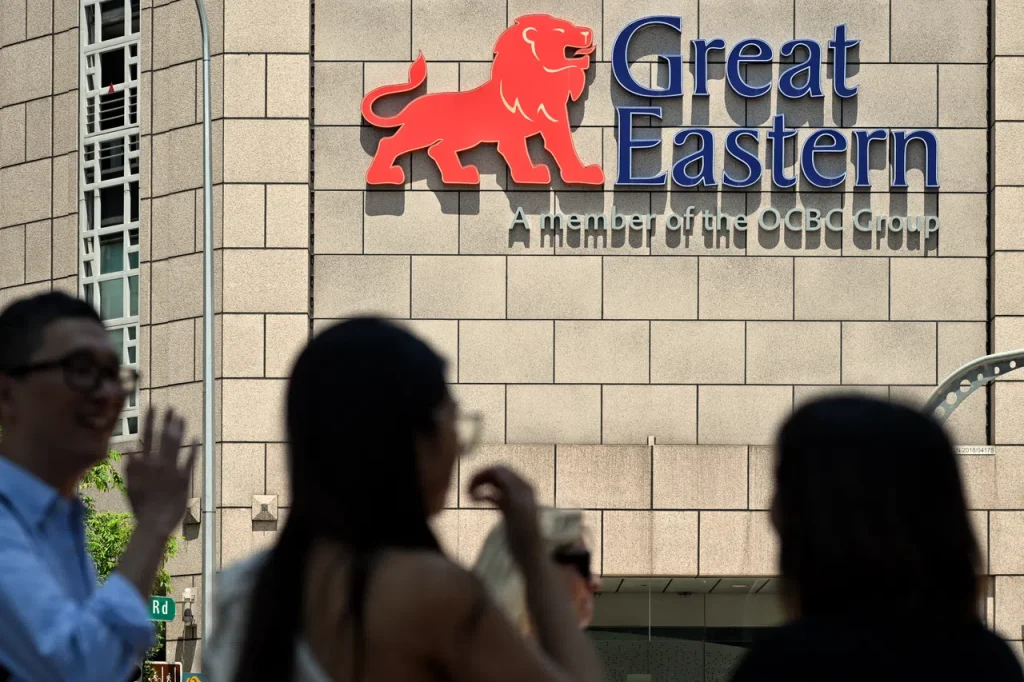[SINGAPORE] OCBC on Friday (Jun 6) made a conditional exit offer at S$30.15 per share for the 6.28 per cent stake in Great Eastern it does not own, in a bid to delist the insurer.
The offer, which OCBC said was made “at the request of Great Eastern”, was deemed “fair and reasonable” by the independent financial adviser (IFA) to the deal.
The offer comes more than a year after OCBC first made a privatisation bid for Great Eastern through a voluntary unconditional general offer at S$25.60 per share.
OCBC had earlier said its previous offer, which the IFA deemed “not fair but reasonable”, was final.
Here are some takes from Great Eastern’s shareholders – past and present – on the latest offer:
The latest exit offer is still not good enough, sitting at the lower range of the S$30 to S$36 possibility, but it is at least higher than before, said a current Great Eastern shareholder, who declined to be named.
BT in your inbox

Start and end each day with the latest news stories and analyses delivered straight to your inbox.
He did not accept the first OCBC offer at S$25.60 per share, but plans to accept the latest exit offer.
To this shareholder, the structure of the exit was “very clever”. If shareholders reject the first option, the second will pass and result in shareholders holding a stake in a company that does not offer much better trading liquidity.
Under the second resolution, shareholders will vote on a one-for-one bonus issue to restore the minimum public float so GE can resume trading. OCBC has undertaken to take its bonus entitlement in the form of a new category of Class C shares which will not be listed, thus diluting OCBC’s listed stake and raising the free float to above 90 per cent.
“By designing a mechanism of an unprecedented class of non-voting shares – in order to optically satisfy the free float requirements as the other option to vote for – they ensured that minorities have a Hobson’s choice,” the shareholder said.
This may set a bad precedent in the market for regulators to accept, as it allows other privatisation deals to force minority shareholders to accept “lousy offers”, he added.
As a result, the shareholder said it was better to “take it and move on” than to risk the second option.
“Clearly, if you are a minority in this company, you know you will be treated badly even if it’s public – so might as well move on,” he said.
Former remisier Ong Chin Woo, who had publicly fought to unlock value for minority shareholders of Great Eastern since March 2024, said these actions “disproportionately disadvantaged” vulnerable minority investors, particularly those unable to hold suspended shares.
Ong has not decided if he would accept the offer as he is awaiting the IFA report.
Meanwhile, shareholders who had already accepted OCBC’s original offer have mixed feelings.
A shareholder, who only wanted to be known as Heng, said she was apathetic, as she felt that the original offer had been fair given market sentiments a year earlier.
It is a norm in the stock market for prices to rise and fall, said Heng, who had been a Great Eastern shareholder for around three to four years.
“We’re talking about a year’s difference. Even if I hung on, I don’t know what price it would have been,” she said.
“To me, my own deal is over. I move on and put my money somewhere else,” she added.
Meanwhile, a shareholder who only wanted to be known as Jessica said she felt very “disappointed” after learning of the new exit offer.
Jessica, who is semi-retired, said she had been a shareholder of Great Eastern for more than a decade, and had rejected several takeover offers in the past.
She accepted OCBC’s first offer “at the very last minute” as she was afraid that she would be stuck with shares in a delisted company.
She was also convinced by OCBC’s repeated emphasis that they would not raise the offer price.
“I gave in at that time, because I trusted that (OCBC was) a big, reputable bank: if it said it would not increase the offer price, I thought they were serious about it,” said Jessica, who is also a shareholder of OCBC.
She questioned why OCBC did not make a fair and reasonable offer in the first place, and how the new offer will be in the interest of the lender’s shareholders.
“You’re penalising small, retail investors like us,” she said. “I feel like I lost confidence in the stock market.”
The fate of Great Eastern likely lies in the hands of a few significant shareholders. The Lee family behind OCBC and the Wong siblings collectively make up around 3 per cent of the insurer’s holdings – nearly half of the remaining 6.28 per cent that OCBC is looking to acquire.


